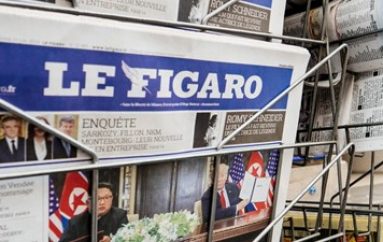
House group sees ‘obstacles’ in cracking encryption for police
A working group of House lawmakers studying the thorny problem of encryption this week appeared to lean away from a law requiring companies to provide law enforcement with any form of guaranteed access to locked communications.
“Members of the encryption working group see a range of obstacles to broad legislative mandates to require special access to law enforcement,” the group said in a release detailing “key takeaways” from its meetings with experts from the government, civil society, academic and private industry sectors.
The group, made up of members of the Energy and Commerce and the Judiciary committees, also affirmed that encryption technology is “a good thing” that protects users from criminals and hackers.
The message appears to be in direct opposition to a draft bill from the leaders of the Senate Intelligence Committee that would require tech firms to provide “technical assistance” to investigators seeking access to locked data.
That bill, the working group and a competing “commission” to study the topic all went public in the shadow of the standoff between the FBI and Apple over a locked iPhone used by one of the San Bernardino, Calif., shooters.
Apple refused to help the FBI break into the device, citing the privacy and security of everyday users of its flagship product.
The FBI and law enforcement officials have for years warned that extremists are increasingly using encrypted platforms to “go dark” and hide their plans from authorities.
But the tech industry and privacy advocates have resisted providing investigators with any guaranteed access, insisting that would create “backdoors,” or security vulnerabilities, that hackers and spies could exploit.
Many believe that the issue can only be resolved through congressional action — but it remains undetermined whose bailiwick the going dark problem is. The problem has been the subject of some jurisdictional wrangling on the House side.
The working group tipped its hat to the contentious relationship that has developed between Silicon Valley, wary of government surveillance in the wake of the Edward Snowden disclosures, and frustrated law enforcement agencies.
“Increased cooperation between law enforcement and the private sector can help break down the adversarial walls that have been built in recent years,” the group said.
The group is slated to provide its formal recommendations by the end of this Congress, on Jan. 3, 2017.
Source | TheHill





